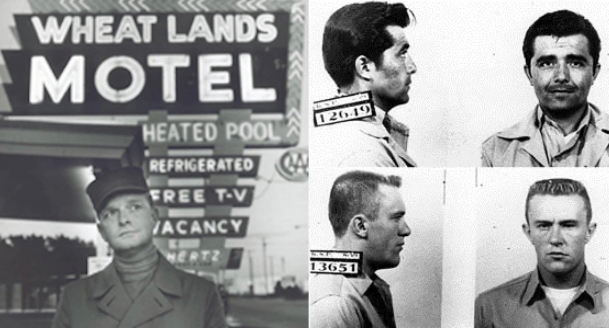On November 14, 1959, two petty criminals, Dick Hickock and Perry Smith, crossed Kansas, murdered the Clutter family in the tiny hamlet of Holcomb, Kansas and unwittingly enabled a New York City writer named Truman Capote to achieve immortality for all three of them.
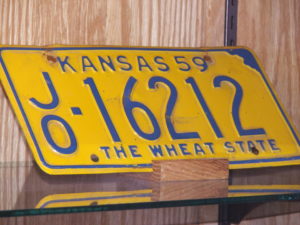
This arrest was most likely the result of the efforts of KBI investigator Harold Nye, who, in the interim after the Wells revelation, had traveled to Las Vegas to question individuals who might have encountered Perry Smith while Smith stayed in the city prior to returning to Kansas. Nye also met extensively with members of the Las Vegas Police department and impressed upon them that Smith especially was known to frequent the city and that Smith and Hickock’s apprehension was extremely important. While the attentive Las Vegas patrolmen who spotted the stolen plate and vehicle deserve credit, most likely they were focused as a result of information transmitted throughout the department, the result of Harold Nye’s diligence.
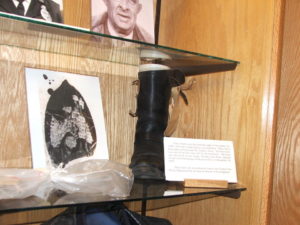
Hickock and Smith, not wanting to drag a lot of miscellaneous items with them when they returned from Mexico and had to resort to hitchhiking, mailed a box to Post Office General Delivery in Las Vegas containing, among other things, the boots they wore the night they killed the Clutters. Their arrest occurred only a few minutes later and had the police nabbed them sooner these critical items that physically linked them to the murder scene might never have been recovered.
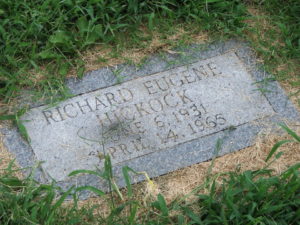
Hickock went first although no one was really sure how that was decided, perhaps alphabetically. He made a brief statement; “I don’t have any hard feelings. You’re sending me to a better place.” He then thanked the KBI agents for being there and was helped by guards up the thirteen steps of the gallows. There, while the 23rd Psalm was intoned by the prison chaplain, a hood was placed over his head, a noose tightened around his neck and the long hood. At 12:19 AM he was positioned exactly on the wooden platform and then the hangman, paid six hundred dollars for his effort, pulled a lever opening a small trap door, Hickock falling straight down until the rope snapped taut breaking his neck. A doctor present for this official purpose took 22 minutes to pronounce Hickock dead, after his heart stopped beating.
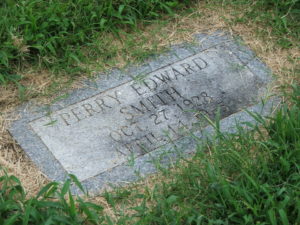
Smith was next, driven to the gallows and arriving a little after 1 AM. In Capote’s book, he is supposed to have issued an apology but his last official words actually were: “I think it is a hell of a thing that a life has to be taken in this manner. I say this especially because there’s a great deal I could have offered society. I think capital punishment is legally and morally wrong. Any apology for what I have done would be meaningless at this time. I don’t have any animosities toward anyone involved in this matter. I think that is all. Then Smith ascended the steps to the gallows, underwent the same process as Hickock, dropped through the trap door at 1:07 AM and was pronounced dead 12 minutes later.
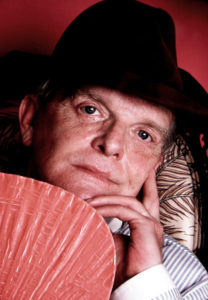
Capote’s fall from grace was so complete that he exiled himself to California and published only fragments and short pieces, Answered Prayers remaining unfinished. In August of 1984, having not published anything of substance for almost twenty years and while apparently living at the home of his newest best friend Joanne Carson, talk show host Johnny’s second wife, Capote died of liver cancer. Gore Vidal, who successfully sued Capote over accusations of drunkenness at the White House and also famously claimed that Capote’s voice was audible only to dogs called it a good career move.
Podcast: Play in new window | Download
Subscribe: RSS

